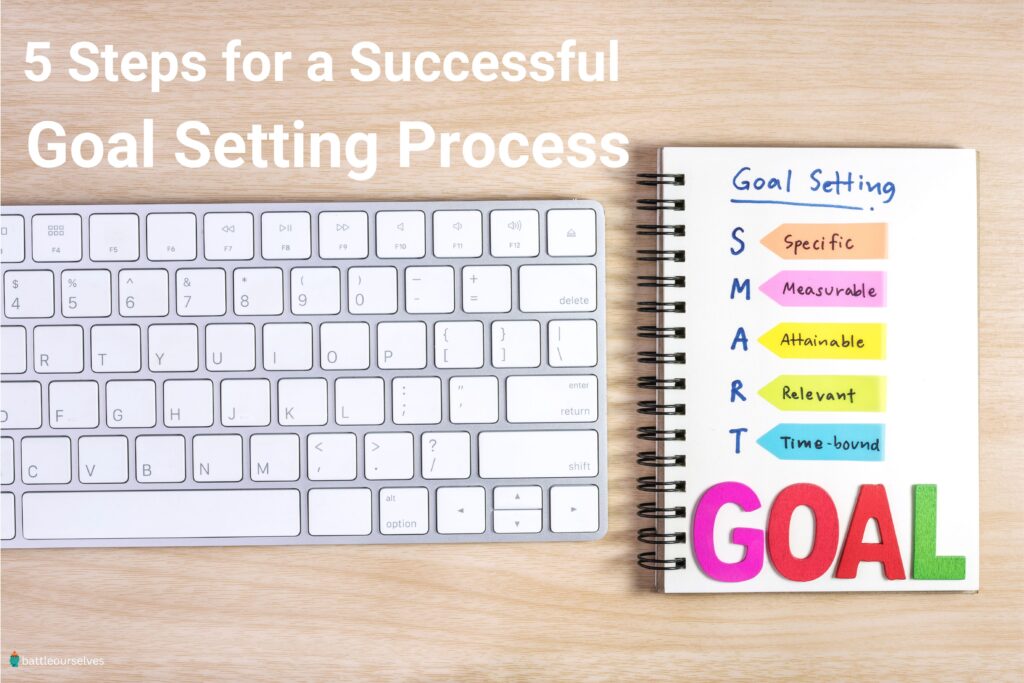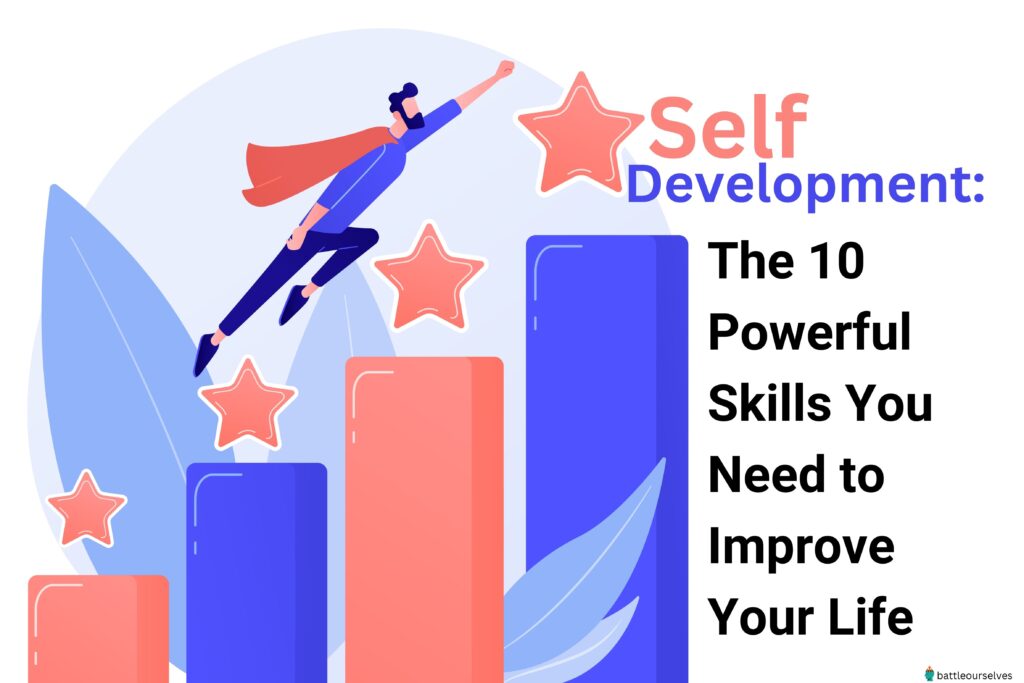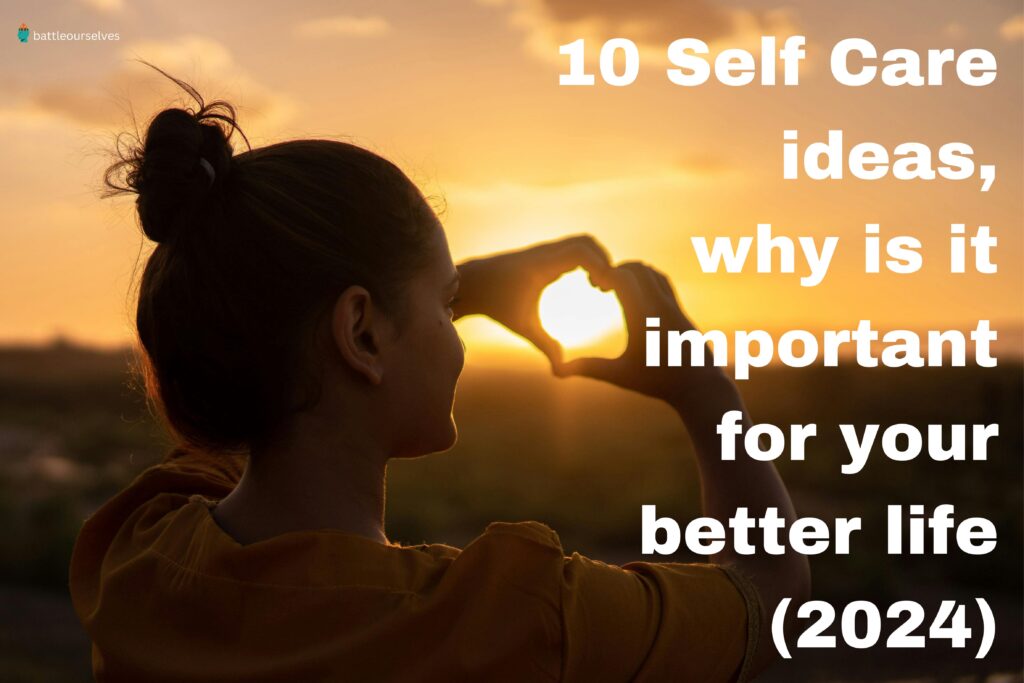life hacks
it always seems impossible until it's done
Now the time to work on yourself
“Today is the perfect day to work on becoming the best version of yourself. The journey of self-improvement begins with a single step taken right now.”
5 Steps for a Successful Goal Setting Process
Goals Setting and meeting deadlines can seem overwhelming, learning how to set specific SMART goals can help you face your next looming deadline with confidence. In this article, we discuss the five elements of creating SMART goals and we offer an example that will guide you through every step of the process.
Self Development: The 10 Powerful Skills You Need to improve Your Life For Social Media
Self-development refers to the process of improving oneself through activities and practices that increase awareness, skills, knowledge, strengths, weakness, identity and potential of oneself by working on oneself to differentiate oneself from others. It involves taking deliberate steps to better understand oneself, achieve personal goals and maximize one's potential. That's give changes in your life with Goal Setting, Continuous Learning, Effective time management, and Cultivating Positive Relationships.
10 Self Care Ideas, why is it important for your better life (2024)
Self care for self-development refers to the practices and interactions that individuals engage in to nurture their physical, mental, emotional, and spiritual health, with the ultimate goal of personal growth and improvement. It involves prioritizing your self-development and taking active steps to promote overall health and flexible.
12 beneficial ways to make your life happier with Cultivate Positive habits and give up bad habits
To cultivate positive habits means to intentionally nurture behaviors, actions, or routines that contribute to personal growth, well-being, and success. Cultivating positive habits requires dedication, consistency, and a willingness to invest time and effort in self-improvement. These habits are typically aligned with one's values, goals, and aspirations, and they have the power to transform attitudes, behaviors, and outcomes over time. Examples of positive habits include regular exercise, healthy eating, mindfulness practices, goal setting, effective time management, continuous learning, and cultivating positive relationships.

7 Effective Tips: Listen to Music to Build Music Listening Skills
Moving your body to your favorite music can instantly boost your spirits and reduce stress levels. There is no pressure to choose a particular type of music. It's all up to you what your music choice is.

Can nature help you find peace? Here are 5 reasons (2024)
Nature has a profound ability to help people find peace. The sights, sounds, and scents of nature provide a calming effect, helping the mind to calm down and refocus. Immersing yourself in a natural environment by taking a walk in the woods, going to the beach, or sitting in a park can reduce stress and anxiety.
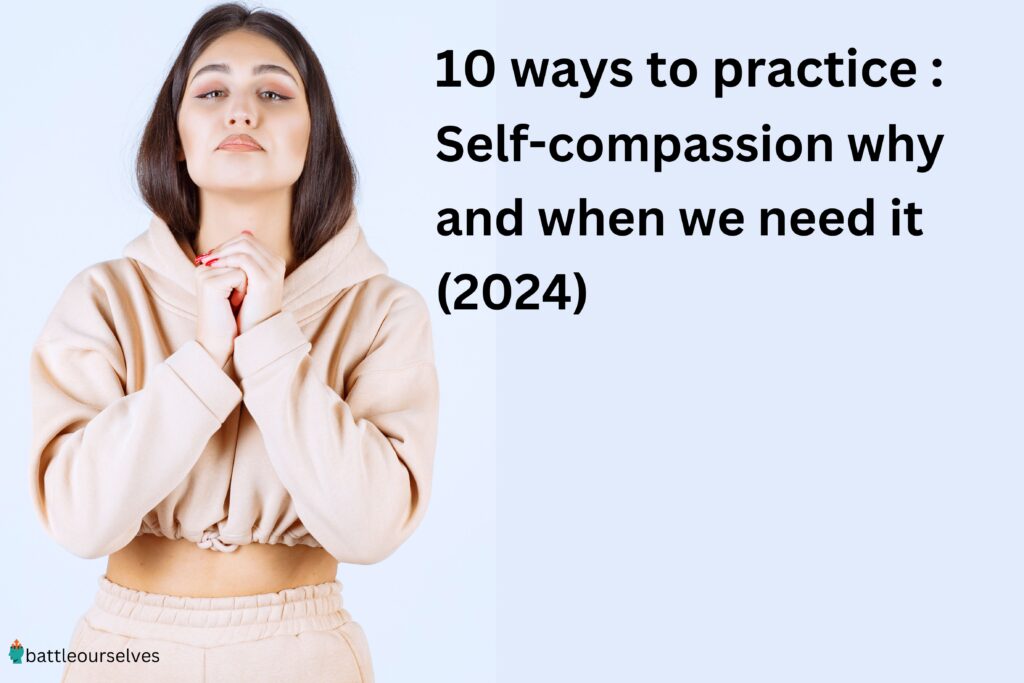
10 ways to practice: Self-compassion why and when we need it (2024)
Practicing self-compassion means treating yourself with kindness and understanding, especially when you feel inadequate or unsuccessful, so that you can find good motivation in yourself. This involves being empathetic and warm towards yourself rather than being critical or harsh. There are many reasons due to which you become disappointed with yourself and how to solve it.
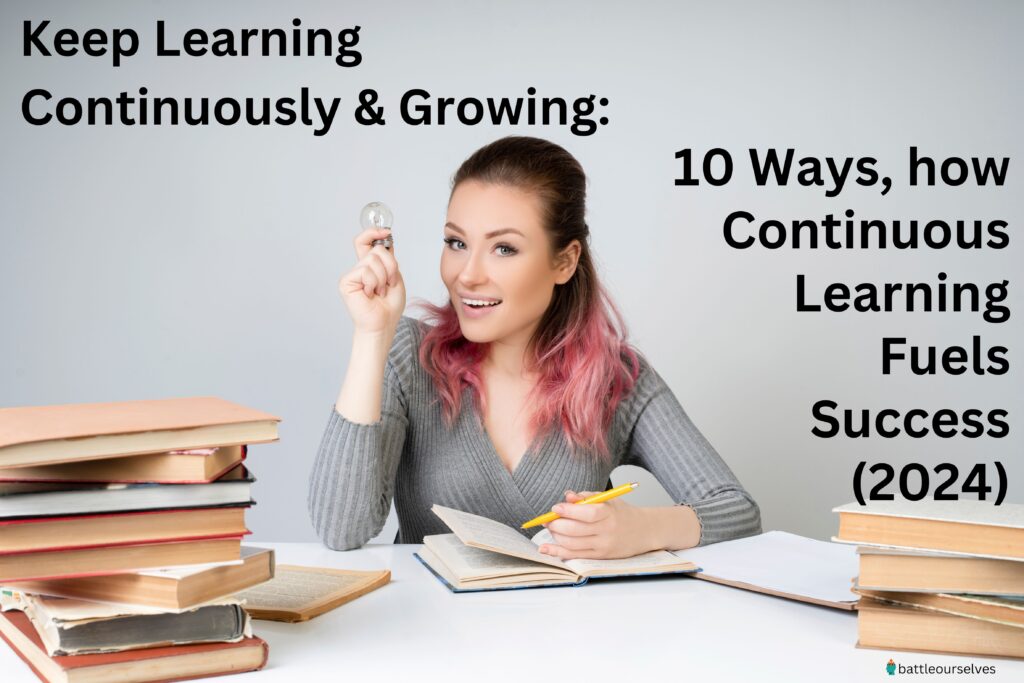
Keep Learning Continuously & Growing: 10 Ways, how Continuous Learning Fuels Success (2024)
Learning is essential to our existence. Just like food nourishes our bodies, information and continued learning nourishes our minds. Lifelong learning is an indispensable tool for every career and organisation. Today, continuous learning is an essential part of acquiring critical thinking skills and discovering new ways of relating to people from different cultures. Changes in your personal life, changes in your career, changes in your community and organizations. “The only thing that is constant is change”, Heraclitus.

7 Successfull Methods: To being out of your comfort zone
Comfort zone is a set of specific behaviors, routines, and tasks that are familiar. This involves your regular habits and routines where you experience low levels of stress and anxiety, with no risks involved. People who "live in the comfort zone" generally take minimal risks and receive minimal rewards in return. Leaving your comfort zone and taking risks is the main way to move forward. But taking the first step can be difficult. That's right, comfort zones aren't really about comfort, they're about fear. By overcoming the fear of fear, you will learn to enjoy the process of taking risks and grow in the process.
What would life be like without life hacks?
Without life hacks it would likely be more challenging and less efficient. Without life hacks, people find it difficult to solve common problems, save time and improve productivity in various aspects of their lives. Without life hacks, individuals may have to rely only on traditional methods or trial-and-error approaches to complete tasks, which can be time-consuming and less effective.
- Increased Stress and Frustration: Without this may experience increased stress, frustration, and feelings of overwhelm when faced with difficult situations.
- Decreased Convenience: Without this, individuals may find themselves dealing with inconvenience and inconvenience in their daily lives.
- Limited Problem-Solving Options: Without life hacks there are limited problem-solving options.
- Increased Time and Effort: Without life hacks to streamline tasks or optimize processes, people may need to spend more time and effort to achieve the same results.
- Less Efficiency and Productivity: Without this, individuals may experience reduced efficiency and productivity in their daily activities and work.
What would life be like with life hacks?
Life hacks are clever tips, techniques, or shortcuts that make little tasks easier. Life with life hacks would likely be characterized by increased efficiency, productivity in various aspects of daily life. You can also think of them as creative, improvised solutions to common problems.
- Reduced Stress and Frustration: Life hacks help individuals proactively manage stress and reduce frustration by offering strategies for overcoming obstacles. By implementing these techniques, people can minimize stressors and maintain a sense of control in their lives.
- Creative Problem-Solving: Life hacks encourage creative problem-solving and by offering original solutions to common challenges. With a source of life hacks at their disposal, individuals can think outside the box and find creative ways to overcome difficulty in various areas of life.
- Improved Time Management: Life hacks offer strategies for optimizing time and prioritizing tasks, allowing person to perform more in less time. With effective time management techniques, people can balance work, personal life, and rest activities more smoothly.
- Enhanced Productivity: Life hacks help person work smarter, not harder, by multiplying productivity and reduce distractions. With tools and techniques for staying focused and organized, people can accomplish tasks more quickly and effectively, freeing up time for other activities.
- Empowerment and Confidence: Life hacks empower individuals to take control of their lives and achieve their goals with confidence. By learning new skills, adopting helpful strategies, and overcoming difficulty, people gain a sense of empowerment that contributes to overall well-being.
